In the vast ocean of the internet, where every click seems to lead to a new adventure, it may seem like a treasure hunt to discover the best free eBook download websites.
As an avid reader and a digital explorer myself, I’ve sailed through the virtual seas, discovering islands of literary wonders. In this blog post, I’ll share my journey and unveil the map to some of the best free eBook destinations.
1: The Kindle Jungle – Amazon Kindle

My journey into the world of free eBooks began in the dense foliage of the Kindle Jungle. Amazon, the giant of online retail, offers a treasure trove of free eBooks for its Kindle readers. As a Kindle user, I was pleasantly surprised to find a wide array of genres, from classic literature to contemporary fiction, available for free. The catch? Well, there isn’t one.
All it takes to begin assembling your digital library is a few clicks, and these books are actually free.
I remember stumbling upon timeless classics like Jane Austen’s “Pride and Prejudice” and F. Scott Fitzgerald’s “The Great Gatsby” without spending a dime. The Kindle Jungle not only satisfied my hunger for literature but also introduced me to authors and genres I might have yet to explore.
Unique Features:
- Integrated Amazon ecosystem: Seamlessly buy and download millions of eBooks directly from Amazon.
- Whispersync: Synchronizes reading progress, bookmarks, and notes across all devices with the Kindle app (including tablets, smartphones, and computers).
- Vocabulary Builder: Look up words with built-in dictionary and translation options.
- X-Ray: Explore the book’s structure, characters, and key terms with interactive visuals.
- Word Wise: Define difficult words without leaving your page.
- Family Library: Share eBooks with up to 6 family members.
- Kindle Unlimited: Subscription service offering millions of eBooks and audiobooks for a monthly fee.
Pros:
- Extensive library: Millions of eBooks available across various genres and languages.
- Portability: The lightweight device holds thousands of books, reducing physical clutter.
- Comfortable reading experience: E-ink display mimics paper for glare-free and eye-friendly reading.
- Adjustable settings: Customize font size, margins, and lighting for personalized comfort.
- Built-in dictionary and translation tools: Enhance understanding while reading.
- Affordable eBooks: Often cheaper than physical copies, especially with Kindle Unlimited.
- Integration with libraries: Borrow eBooks from your local library through apps like Libby.
- Accessibility features: Options for dyslexic fonts and voice narration.
Cons:
- Limited functionality: Primarily for reading eBooks, needs more multimedia capabilities of tablets.
- Not truly paperless: Requires electricity to operate, unlike physical books.
- E-ink display limitations: It doesn’t support colour images or videos.
- Potential eye strain: Prolonged reading on a screen can still affect eyes.
- Lock-in to Amazon ecosystem: eBooks purchased might not be compatible with other eReaders.
- Subscription costs: Kindle Unlimited adds monthly expenses, which might need to be more cost-effective for casual readers.
Overall:
The Amazon Kindle is a popular choice for readers due to its vast library, portability, and comfortable reading experience. However, its limited functionality, potential eye strain, and lock-in to the Amazon ecosystem are important considerations.
2: Project Gutenberg – The Oasis of Classics
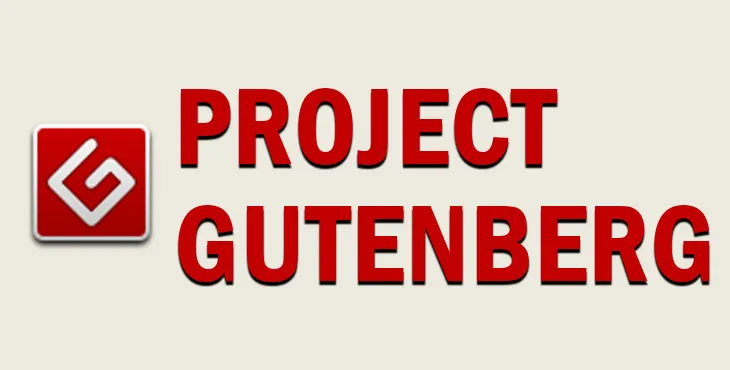
While the Kindle Jungle provided a lush environment for bookworms, it was my discovery of Project Gutenberg that truly felt like finding an oasis in the desert. Project Gutenberg, a volunteer-driven digital library, boasts over 60,000 free eBooks and its focus is on classics for which copyright has expired.
I vividly remember downloading Arthur Conan Doyle’s “Sherlock Holmes” series and diving into the mysteries of 221B Baker Street. The sheer volume of literary masterpieces available on Project Gutenberg is awe-inspiring, making it a go-to destination for anyone with a penchant for the classics.
Unique Features:
- Focus on Public Domain Works: Project Gutenberg specializes in offering free eBooks that are in the public domain; they are not subject to copyright restrictions. This allows them to offer a vast collection of classic literature and historical works that may not be available elsewhere.
- Large Collection: As the oldest digital library, Project Gutenberg boasts a massive collection of over 60,000 eBooks in various formats, including plain text, HTML, and ePub.
- Volunteer-Driven: This non-profit project relies on volunteers who contribute their time and expertise to digitize and proofread public domain texts. This dedication ensures the quality and accuracy of the eBooks.
- Multilingual: While primarily English, Project Gutenberg offers eBooks in over 60 different languages, promoting accessibility to global audiences.
Pros:
- Free: All eBooks are completely free to download and use, making it a great resource for those seeking affordable reading material.
- Variety: With a diverse collection spanning genres and languages, Project Gutenberg caters to a wide range of readers’ interests.
- Legality: Since everything is public domain, you can be sure you’re accessing legal and copyright-free content.
- Preservation: Project Gutenberg contributes to the preservation of cultural heritage by making classic works readily available in digital format.
- Accessibility: The website is easy to find, and download options are convenient.
Cons:
- Limited Selection of Recent Works: Due to copyright restrictions, Project Gutenberg focuses on older public domain works, excluding recently published books.
- Formatting Variation: As volunteers handle digitization, formatting consistency can vary across eBooks.
- Limited Features: Compared to commercial platforms, Project Gutenberg offers fewer features like user reviews, recommendations, or community interaction.
- Mostly Plain Text: Most eBooks are available in plain text format, lacking multimedia elements or advanced formatting features.
- Reliance on Volunteers: The project’s growth and maintenance depend on volunteer efforts, which can sometimes impact resource availability.
Overall:
Project Gutenberg stands out for its vast collection of free public domain eBooks, dedicated volunteers, and contribution to cultural preservation. While it may have limitations in recent releases and advanced features, it remains a valuable resource for affordable and legal access to classic literature and historical works.
3: Librivox – A Symphony of Words
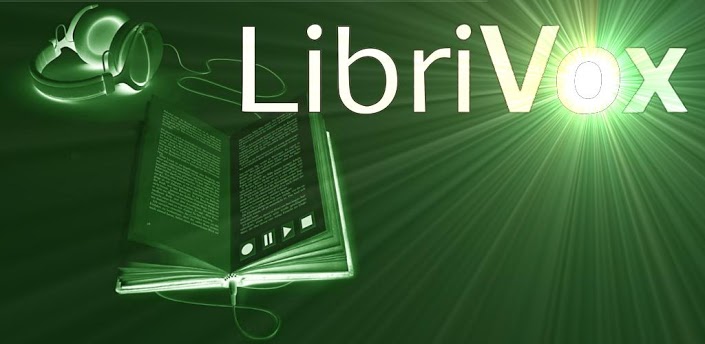
As my eBook collection grew, so did my desire to explore beyond the written word. This led me to Librivox, an audiobook platform where volunteers narrate audiobooks of public domain works. Librivox transformed my reading experience, allowing me to immerse myself in stories while commuting, exercising, or simply closing my eyes and drifting into literary realms.
I vividly remember listening to Jules Verne’s “Twenty Thousand Leagues Under the Sea,” with a narrator whose voice painted vivid pictures of Captain Nemo’s undersea adventures. Librivox isn’t just a platform; it’s a community of voices bringing literature to life.
Unique Features:
- Public Domain Audiobooks: Librivox focuses solely on audiobooks of works in the public domain, meaning they are free from copyright restrictions. This allows them to offer a vast library of classic and lesser-known literature unavailable elsewhere.
- Volunteer-Driven: Recordings are done by volunteers from around the world, contributing to the platform’s unique and diverse voices.
- Multiple Formats: Audiobooks are available in various formats like MP3 and M4B, compatible with most devices.
- Community-Based: Librivox boasts a supportive community forum where volunteers can connect, collaborate, and contribute to the project’s growth.
- Open Source: Recordings are released under an open-source license, allowing for remixing and redistribution.
Pros:
- Free: All audiobooks are entirely free to download and enjoy.
- Wide Selection: With thousands of audiobooks available, Librivox caters to diverse interests and reading preferences.
- Unique Listening Experience: Volunteer narrators offer a personalized touch and unique interpretations compared to professional recordings.
- Accessible: Available on all devices and perfect for those who prefer audio over physical books.
- Supports Literacy: By providing free audiobooks, Librivox promotes literacy and accessibility to literature.
Cons:
- Audio Quality: Recordings can vary in quality due to the volunteer nature of the project. Some might have background noise or uneven sound.
- Limited Editing: Editing might be minimal, leading to occasional stumbles or imperfections.
- No Bestsellers: Due to copyright restrictions, popular recent releases are unavailable.
- Limited Narration Styles: Volunteer narrators might only sometimes match professional voice actors in quality or experience.
- Finding Specific Books: Browsing might be more challenging compared to curated platforms due to the vast and diverse library.
Overall:
Librivox is a valuable resource for those seeking free audiobooks of public domain works. It offers a vast and diverse library, supports accessibility, and fosters a vibrant community. However, be prepared for variations in audio quality and limited options for recent bestsellers. If you value affordability, diversity, and unique listening experiences, Librivox is definitely worth exploring.
4: Smashwords – The Indie Haven
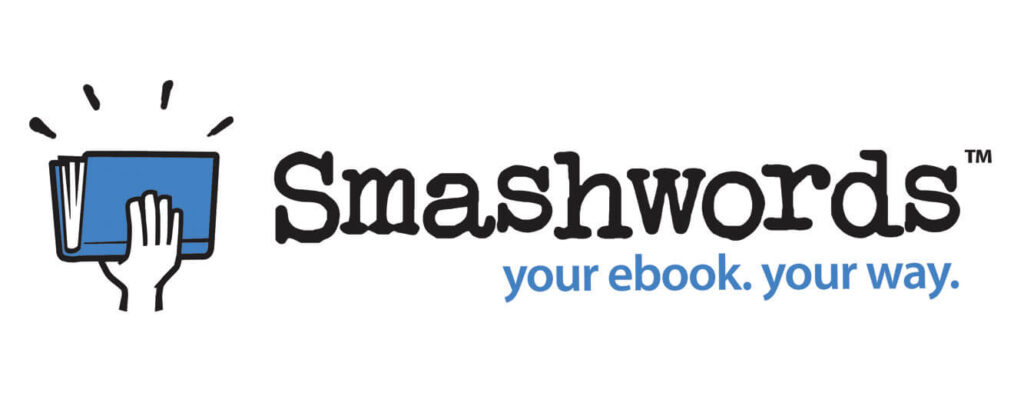
My quest for diverse literary landscapes led me to Smashwords, a platform that champions independent authors. Smashwords offers a plethora of free eBooks as a way for authors to showcase their work and for readers to discover hidden gems.
I recall stumbling upon debut novels and experimental works that challenged my literary palate. From sci-fi adventures to heart-wrenching poetry, Smashwords became my haven for supporting emerging voices in the literary world.
Unique Features:
- Global Distribution: Smashwords distributes your ebook to over 300 retailers worldwide, including Apple, Barnes & Noble, Kobo, and Rakuten. This allows for a wider reach than many other platforms.
- Wide File Format Support: Upload your ebook in various formats like epub, mobi, and pdf, which Smashwords then converts for different retailers. This saves time and effort than converting them yourself.
- Pre-Order Scheduling: Schedule your ebook release in advance and build anticipation among readers.
- Metadata Optimization: Get help optimizing your book’s metadata (title, description, keywords) for better discoverability.
- Marketing Tools: Access basic marketing tools like email promotion and coupon codes to reach potential readers.
Pros:
- Free to use: No upfront costs to publish your ebook on Smashwords. You only pay a royalty fee when your book sells.
- Retain Control: Maintain full control over your book’s pricing, rights, and metadata.
- Simple Interface: User-friendly platform for uploading your ebook and managing its details.
- Reporting and Statistics: Track your book’s sales performance and reader demographics.
- Community Support: Access a supportive community of self-published authors through the Smashwords forums.
Cons:
- Lower Royalties: Compared to some retailers like Amazon, Smashwords offers lower royalty percentages.
- Limited Marketing Features: The included marketing tools are basic and may need to be revised for all authors.
- No Direct Reader Engagement: Limited options for directly interacting with readers on the platform.
- Less Control over Formatting: While Smashwords converts your files, you have less control over the final formatting compared to publishing directly with retailers.
- Potentially Lower Discoverability: With so many ebooks on the platform, it cannot be easy to stand out and get discovered by readers.
Overall:
Smashwords offers a convenient and accessible platform for self-publishing ebooks with global distribution and basic marketing tools. However, consider the lower royalty rates and limited control over formatting and marketing before choosing it as your primary publishing platform.
It may be ideal for authors who want to reach a wide audience without upfront costs and are comfortable with limited marketing features.
5: Open Library – Building Bridges
Amid my digital journey, I discovered Open Library, a platform that combines the concept of a traditional library with the convenience of digital access. Open Library allows users to borrow eBooks for a limited period, emulating the experience of checking out a physical book.
I remember borrowing Neil Gaiman’s “American Gods” and relishing the thought that, in the digital realm, I could still experience the anticipation of returning a borrowed book. Open Library bridges the gap between the nostalgia of physical libraries and the convenience of digital reading.
Unique Features:
- Non-profit: Unlike many other eBook download sites, Open Library operates as a non-profit organization aiming to make knowledge freely accessible to all.
- Community-driven: Open Library relies on its community to contribute and borrow books. Users can contribute physical copies to scan and add to the library’s digital collection.
- Borrowing system: Similar to a traditional library, Open Library allows users to borrow eBooks for a limited period without any charges.
- Wide variety of formats: Open Library offers eBooks in various ebook formats, including EPUB, PDF, and MOBI, compatible with most eReaders and devices.
- Integration with other platforms: Open Library integrates with various platforms like Goodreads and Libby, allowing for a seamless reading experience across different channels.
Pros:
- Free access to a vast collection: Open Library offers millions of eBooks free to borrow, including classics, contemporary fiction, and non-fiction works.
- Legal and ethical: Unlike some piracy websites, Open Library operates within legal and ethical frameworks.
- Supports literacy and education: By providing free access to books, Open Library promotes literacy and education, especially in underserved communities.
- Environmentally friendly: By offering eBooks, Open Library reduces the environmental impact of paper book production and consumption.
- Supports authors: Open Library offers authors the option to “lend” their books through the platform, allowing them to reach new audiences and potentially generate income.
Cons:
- Limited availability of new releases: Due to copyright restrictions, Open Library may only sometimes have the latest best-sellers or new releases available.
- Waiting lists for popular titles: Popular titles can have long waiting lists, making it difficult to borrow them immediately.
- Limited format selection: While offering various formats, Open Library may only have some formats available for some books.
- Reliance on Internet connection: Accessing and borrowing eBooks on Open Library requires a stable Internet connection.
- Potential copyright issues: Some authors may not agree to have their books available in the Open Library, raising potential copyright concerns.
Overall, Open Library is a valuable eBook resource for readers seeking free and legal access to a vast collection of eBooks. While it has limitations, its unique features, community focus, and commitment to open access make it a valuable tool for promoting literacy and knowledge sharing.
6: Google Books – The All-Encompassing Archive
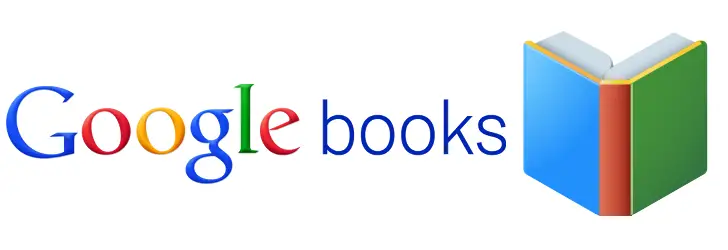
An exploration of free eBook sites would only be complete with a mention of Google Books. While many consider it a search engine for books, it’s also a goldmine for free eBooks. Google Books provides access to a vast collection of books, including many classics and academic publications.
I reminisce about finding scholarly works on philosophy and history that enriched my understanding of various subjects. Google Books is like a grand archive where the doors are open, inviting you to explore the knowledge stored within its digital shelves.
Unique Features:
- Massive selection: Google Books boasts one of the largest collections of ebooks online, including public domain texts, out-of-print works, and new releases.
- Integration with Google ecosystem: Seamless integration with other Google services like Search, Play Store, and Drive creates a unified experience for browsing, purchasing, and reading ebooks.
- “Look Inside” preview: Offers extensive previews of many ebooks, allowing you to sample content before purchase.
- Text search and translation: Search within any ebook and translate portions to various languages directly on the platform.
- Advanced library management: Organize ebooks with custom shelves, add notes and highlights, and sync progress across devices.
Pros:
- Free access to public domain books: Read millions of classic and historical works without spending a dime.
- Competitive pricing: Many ebooks are offered at competitive prices, often with frequent sales and discounts.
- Multiple reading options: Read ebooks directly in your browser, on the Google Play Books app, or download compatible formats for offline reading.
- Cross-platform compatibility: Accessible from almost any device with a web browser or the Play Books app.
- Integration with libraries: Borrow ebooks directly from your local library through Google Play Books.
Cons:
- Limited availability of some titles: Not all ebooks are available for purchase or even preview.
- DRM restrictions: Downloaded ebooks may be protected by DRM, limiting transferability and compatibility with other devices or readers.
- Privacy concerns: Google collects data on your reading habits, which may be unsettling for some users.
- Fewer customization options compared to dedicated ebook readers: The reading experience might be less customizable compared to dedicated ebook readers.
- No lending or resale of purchased ebooks: Unlike physical books, purchased ebooks cannot be loaned or resold.
Overall, Google Books offers a vast library, integration with the Google ecosystem, and competitive pricing, making it a valuable option for ebook readers. However, the limited availability of titles, DRM restrictions, and privacy concerns might be drawbacks for some users.
7: Internet Archive – A Time Capsule of Knowledge
While Google Books provides a vast collection, the Internet Archive takes archiving to a whole new level. The Wayback Machine, which is a small part of the Internet Archive, allows users to access snapshots of websites as they reflect at different points in time. As I delved deeper into this digital time capsule, I discovered the rich collection of eBooks it holds.
I remember stumbling upon rare manuscripts and forgotten gems, each book telling a story not just through its content but also through the era it represented. The Internet Archive is not merely a library; it’s a testament to the ever-evolving nature of knowledge on the Internet.
Unique Features:
- Massive collection: Over 29 million eBooks, including public domain, Creative Commons licensed, and “borrowed” titles (more on that later).
- Diverse formats: PDFs, EPUBs, audiobooks, scanned images, and even archived websites.
- Preservation mission: Focuses on long-term, publicly accessible digital archives, not just selling eBooks.
- “Borrowing” program: Borrows select public domain eBooks for limited periods without creating an account.
- Advanced search & filter options: Search by text, subject, language, publisher, year, and more.
- Integration with libraries: Many libraries offer lending access to Internet Archive eBooks through their platforms.
Pros:
- Free access to public domain and Creative Commons titles.
- Wide variety of formats and languages.
- Unique historical and cultural content, including archived websites.
- The borrowing program offers temporary access without commitment.
- Non-profit mission supports free access to knowledge.
Cons:
- Not all eBooks are free; some require individual purchase or borrowing through a library.
- Copyright issues: May include content in “grey areas” of copyright law, leading to controversy.
- The user interface can be complex for casual users.
- The quality of scanned books can vary.
- The “Borrowing” program has limited selection and wait times.
Overall:
The Internet Archive is a valuable eBook resource for finding free or borrowed eBooks, especially public domain and historical titles. However, its unique mission and diverse content mean it’s only sometimes the most user-friendly option for casual readers seeking bestsellers or the latest releases. Consider your needs and preferences when choosing an eBook download site.
8: Free-Ebooks.net – The Contemporary Haven
In my ongoing quest for literary treasures, I docked at Free-Ebooks.net, a platform that focuses on contemporary works. From romance novels to self-help guides, Free-Ebooks.net offers a diverse selection catering to modern tastes.
I recall finding self-published works by aspiring authors and being pleasantly surprised by the quality and creativity on display. Free-Ebooks.net is a reminder that the digital age not only preserves the classics but also provides a platform for today’s voices to be heard.
9: BookBoon – Knowledge at Your Fingertips
Education is a lifelong journey, and BookBoon understands this well. Specializing in educational material, BookBoon offers free eBooks on a range of subjects, making it an invaluable resource for students, professionals, and lifelong learners.
I reminisce about downloading textbooks and study guides that became companions in my ongoing pursuit of knowledge. BookBoon is a testament to the democratization of education, where anyone with an internet connection can access quality learning materials.
Unique Features:
- Focus on Business & Professional eBooks: BookBoon specializes in business and professional development eBooks, catering to a specific audience.
- Free eBooks: They offer a large selection of free eBooks funded by advertising within the books.
- Subscription Service: Paid subscription grants access to premium eBooks and learning resources.
- Translation Services: Authors can translate their eBooks into multiple languages for wider reach.
- Interactive Features: Some eBooks include interactive elements like quizzes and games.
- Company Branding: Businesses can use BookBoon to create and distribute branded eBooks.
Pros:
- Free eBooks: Excellent resource for budget-conscious learners or those seeking specific information.
- Wide Topic Range: Covers various business and professional development topics.
- Subscription Benefits: Premium content and learning resources for subscribers.
- Translation Opportunity: Authors can expand their reach by translating their work.
- Interactive Learning: Some eBooks offer engaging learning experiences.
- Branding Potential: Businesses can create and distribute branded content.
Cons:
- Limited Free Selection: Many popular titles require a subscription.
- Advertising: Free eBooks often contain ads, which can be disruptive.
- Focus on Business Topics: Not ideal for general interest readers or fiction lovers.
- Quality Variations: Free eBooks may have varying quality compared to paid ones.
- Subscription Cost: A paid subscription might only be cost-effective for some.
- Limited Interactivity: Most eBooks need advanced interactive features.
Overall:
BookBoon offers a unique platform for business and professional learning, with a mix of free and premium content. While the free selection is limited, it can be a valuable resource for budget-conscious learners.
For those seeking in-depth learning or specific topics, the subscription service might be worth considering. However, users should be aware of potential advertising and quality variations in free eBooks, and the subscription cost might only be suitable for some.
10: Your Local Library’s Digital Wing
In the digital age, even brick-and-mortar libraries have embraced the virtual realm. Many local libraries now offer digital collections, allowing patrons to borrow eBooks from the comfort of their homes.
I recall connecting my library card to digital platforms and accessing the same sense of community and support that a physical library provides. Your local library’s digital wing is a reminder that while the medium may change, the essence of a library as a hub of knowledge and community remains.
11: Reddit: A Community of Book Lovers
Social media platforms on the internet have developed into more than just venues to engage in informal conversations; they’ve evolved into vibrant communities. Reddit, in particular, stands out as a dynamic space for book lovers. Subreddits like r/FreeEBOOKS and r/books regularly share links to free eBooks and engage in discussions about literature.
I remember stumbling upon recommendations and hidden gems from fellow readers. Reddit is not just a platform for finding free eBooks but also a virtual book club where readers from around the world gather to discuss, recommend, and share their passion for literature.
12: ManyBooks.net – Tailored Recommendations
As my digital library expanded, I sought a platform that understood my reading preferences. ManyBooks.net emerged as a personalized haven. This site not only offers a vast collection of free eBooks but also provides tailored recommendations based on your favourite genres and authors.
I recall the joy of discovering new titles that perfectly aligned with my tastes, thanks to ManyBooks.net’s thoughtful suggestions. In the world of free eBooks, where choices can be overwhelming, having a platform to curate recommendations felt like having a well-read friend guiding me through the literary landscape.
Unique Features:
- Focus on Public Domain and Creative Commons works: ManyBooks offers a vast collection of free, legally downloadable ebooks, primarily focusing on public domain and Creative Commons licensed works. This means you’ll find a wealth of classics and lesser-known gems that are readily available elsewhere.
- Curated Selection: Unlike some ebook platforms with overwhelming choices, ManyBooks has a curated selection overseen by an editorial team. This ensures a higher quality standard and avoids overwhelming users with irrelevant or low-quality content.
- Multiple formats: ManyBooks offers ebooks in various formats compatible with the most popular e-readers and devices, including EPUB, MOBI, PDF, and TXT.
- Newsletter: They offer a daily newsletter highlighting new and discounted ebooks, helping you stay updated on free reading opportunities.
Pros:
- Free ebooks: Access a massive library of ebooks without spending a dime, making it a great option for budget-conscious readers.
- Classics and hidden gems: Discover classic works and lesser-known titles you might not find elsewhere.
- Variety of formats: Enjoy ebooks on your preferred device with multiple format options.
- Easy to use: The website is simple to use and search, making it user-friendly for all experience levels.
Cons:
- A limited selection of new releases: Primarily focuses on public domain and older works, so you might need help finding the latest bestsellers.
- Reliance on volunteers: The curated selection can be subjective and may not always reflect the latest trends or reader preferences.
- Limited customer support: As a non-profit organization, their customer support might need to be more comprehensive compared to commercial platforms.
- Potential for outdated formatting: Some older ebooks might have formatting issues that require adjustments for optimal reading experience.
Overall:
ManyBooks.net is a valuable resource for readers seeking free ebooks, particularly classics and hidden gems. Its curated selection and multiple formats enhance the experience. However, keep in mind the limited availability of new releases and the potential for outdated formatting.
13: Wattpad – Where Stories Come to Life
In the realm of free eBook platforms, Wattpad stands out as a unique space where writers can share their stories in a serialized format, and readers can engage with the narrative as it unfolds. It’s a community-driven platform that blurs the lines between readers and writers.
I reminisce about stumbling upon hidden gems, often written by aspiring authors experimenting with their craft. Wattpad is not just a platform for reading; it’s a space where stories come to life, and readers can be part of a story’s evolution.
Unique Features:
- Focus on user-generated content: Wattpad is primarily a platform for aspiring and established authors to share their original stories, not just published ebooks. This creates a vibrant community and a diverse range of content.
- Social media integration: Wattpad seamlessly integrates with social media platforms, making it easy to share stories, connect with readers, and build a following.
- Interactive features: Readers can leave comments on chapters, participate in discussions, and vote on stories, creating a more interactive reading experience.
- Wattpad Stars program: Allows readers to support authors directly through microtransactions, providing a potential revenue stream for creators.
- Discovery tools: Wattpad offers curated lists, genre tags, and search functions to help readers discover new stories.
Pros:
- Free to use: Basic features are free for both readers and writers.
- Huge community: With over 90 million users, Wattpad offers a vast audience for writers and a wide selection of stories for readers.
- Feedback and engagement: Writers can receive real-time feedback from readers, helping them improve their work and build a fanbase.
- Springboard for traditional publishing: Several Wattpad authors have been discovered by traditional publishers and gone on to achieve mainstream success.
- Diverse content: Wattpad offers a wider variety of genres and formats than traditional ebook stores, including fanfiction and ongoing serials.
Cons:
- Unpolished content: Since it’s user-generated, quality can vary greatly. Some stories may need to be completed, unedited, or contain mature content.
- Getting noticed can be difficult: With millions of stories, standing out can be challenging, especially for new writers.
- Monetization challenges: While the Wattpad Stars program exists, earning a significant income through microtransactions can be difficult.
- Limited editing and formatting tools: Compared to traditional ebook platforms, Wattpad offers fewer tools for professional formatting and editing.
- Copyright concerns: Some stories may contain copyrighted material without permission, raising legal and ethical issues.
Overall:
Wattpad is a unique platform with a vibrant community and diverse content. It offers aspiring writers a chance to share their work, gain feedback, and potentially build a fanbase. However, it’s important to be aware of the challenges regarding quality, discoverability, and monetization.
For readers, Wattpad offers a treasure trove of unique stories, but it requires careful navigation due to the varying quality and potential copyright issues.
14: BookRix – Empowering Aspiring Authors
While many platforms focus on providing free eBooks to readers, BookRix takes a distinctive approach by empowering aspiring authors. It’s a platform where writers can publish their works, and readers can access a variety of genres for free.
I remember exploring genres that might not be mainstream but showcased the diverse creativity of independent authors. BookRix is a testament to the democratization of publishing, where anyone with a story to tell can find an audience.
Unique Features:
- Completely free publishing: Upload and publish your eBook at no cost.
- Multiple formats: Publish in EPUB, MOBI, and PDF formats.
- Global distribution: Reach readers worldwide through major retailers like Amazon, Apple, Barnes & Noble, and Kobo.
- Royalty options: Choose between a 70% royalty on direct sales or 80% on subscription-based purchases.
- Marketing tools: Utilize built-in tools for promotions, discounts, and author websites.
- Community and support: Access a community forum and support for authors.
Pros:
- Easy to use platform: User-friendly interface for uploading and managing your eBook.
- No hidden fees: Transparent pricing with no upfront costs or subscriptions.
- Global reach: Potential to reach a wide audience through major retailers.
- High royalty options: Competitive royalty rates compared to some other platforms.
- Marketing tools: Helpful tools to promote your book and connect with readers.
- Supportive community: Access to other authors and support resources.
Cons:
- Lower royalties on subscription sales: 80% royalty on subscription sales compared to the industry standard of 70%.
- Limited marketing support: Tools are available, but BookRix only offers a limited number of marketing services.
- Less discoverability: It may be harder for readers to find your book compared to larger platforms.
- No editorial services: No professional editing or proofreading is offered.
- Limited customer support: Customer support may be slower or less comprehensive than with larger platforms.
- Potentially lower sales: Smaller platforms may lead to fewer sales compared to established retailers.
Overall:
BookRix can be a good option for self-publishing authors looking for a completely free and user-friendly platform with global reach and decent royalty options. However, it’s important to be aware of the limitations in marketing support, discoverability, and customer service. Consider your priorities and research other platforms before making a decision.
15: Audiobooks.org – Listening to the World
As my appreciation for audiobooks grew, I discovered Audiobooks.org, a platform that offers a collection of free audiobooks. From classic literature to contemporary fiction, Audiobooks.org became my go-to destination for auditory literary experiences.
I recall listening to the rhythmic cadence of narrators bringing characters to life, turning my daily commute into a journey through worlds crafted by words. Audiobooks.org is a reminder that literature is not confined to pages but can be an immersive auditory experience.
16: Feedbooks – Curated Elegance in Digital Form
Amidst the vastness of the digital bookshelves, Feedbooks stands out for its curated selection of high-quality eBooks. It’s a platform that not only offers a wide range of genres but ensures that each book meets a certain standard of literary excellence.
I remember stumbling upon contemporary novels and thought-provoking essays that reflected the commitment to quality on Feedbooks. In a digital world where quantity often overshadows quality, Feedbooks is a beacon for readers seeking curated elegance in their literary choices.
Unique Features:
- Community-driven approach: Feedbooks offered a platform for indie authors and self-publishers to share their work, fostering a community feel.
- Fair royalty system: Authors kept 70% of their book sales, a higher percentage than some larger platforms.
- Multiple file formats: Ebooks were available in various formats like EPUB, MOBI, and PDF, compatible with different devices.
- Open and flexible pricing: Authors could set their prices or offer their books for free.
Pros:
- A good option for indie authors: Offered alternative distribution and higher royalties compared to larger platforms.
- A wider selection of independent voices: Provided access to works not found on mainstream platforms.
- Affordable ebooks: Authors often price their books lower than traditional publishers.
- User-friendly interface: The website was easy to use and find desired ebooks.
Cons:
- Limited selection compared to bigger platforms: It offered a different breadth of popular titles.
- Marketing challenges for authors: Authors were responsible for their marketing, which could be difficult.
- Reliance on community: Success often depended on building a strong reader base within the Feedbooks community.
- Technical limitations: Website design and features could feel outdated compared to competitors.
It’s important to note that these points represent Feedbooks’ past state and might not be relevant to any other current eBook download sites. Consider researching other platforms when looking for ebooks, depending on your specific needs and preferences.
17: Free-eBooks.ca – A Canadian Treasure Trove
While the digital landscape is global, each region brings its unique flavour to the literary table. Free-eBooks.ca is a Canadian gem that caters to readers with a penchant for CanLit (Canadian Literature) and a diverse array of genres.
I recall exploring works by Canadian authors, delving into the rich tapestry of narratives shaped by the country’s culture and landscapes. Free-eBooks.ca is a reminder that within the expansive realm of free eBooks, regional platforms can offer a more localized and enriching reading experience.
18: Baen Free Library – A Sci-Fi Haven
For enthusiasts of speculative fiction, the Baen Free Library is a treasure trove of science fiction and fantasy. Baen, a publisher known for its contributions to the genre, generously offers a selection of free eBooks, including works by renowned authors.
I remember immersing myself in space operas and epic fantasies, all courtesy of the Baen Free Library. In a genre where imagination knows no bounds, this platform serves as a haven for those who dream of distant galaxies and magical realms.
19: Google Play Books – The All-in-One Platform
While Google Books offers a vast collection, Google Play Books takes the reading experience a step further. It’s not just a platform for discovering free eBooks but a comprehensive digital bookstore that seamlessly integrates with your devices.
I recall the convenience of having my entire digital library accessible across my phone, tablet, and computer, making it easy to pick up where I left off, regardless of the device I was using. Google Play Books is a testament to the integration of technology into our reading habits, making literature truly portable.
Unique Features:
- Integration with Google ecosystem: Seamlessly syncs across devices, bookmarks, and reading progress with other Google services like Google Search and Assistant.
- Family Library: Share ebooks and audiobooks with up to 5 family members.
- Play Points: Earn points for purchases that can be redeemed for Google Play credit.
- Text-to-speech: Listen to ebooks read aloud by Google Text-to-Speech technology.
- Book Search: Advanced book search with filters by genre, author, popularity, and more.
Pros:
- Wide selection: Offers millions of ebooks and audiobooks, including popular titles and independent publications.
- Free books: A large selection of free ebooks and audiobooks are available.
- Competitive pricing: Prices often match or undercut other major ebook retailers.
- User-friendly interface: Clean and intuitive interface for both browsing and reading.
- Offline reading: Download ebooks and audiobooks for offline access.
- Multiple device support: Available on Android, iOS, web browsers, and as a Chrome extension.
Cons:
- Limited availability: Only available in some countries.
- No background playback for audiobooks: Audiobooks cannot be played in the background on other apps.
- No file export or printing: Ebooks cannot be exported or printed.
- A smaller selection of self-published titles: This may have a different depth of selection than other platforms for independent authors.
- Fewer user reviews: We may have fewer user reviews compared to other platforms.
- No subscription service: No subscription service like Kindle Unlimited.
Overall:
Google Play Books is an option for ebook and audiobook readers with its wide selection, competitive pricing, and seamless integration with the Google ecosystem. However, its lack of background playback for audiobooks, limited file export options, and a smaller selection of self-published titles might be drawbacks for some users.
20: BookBub – Your Literary Concierge
In the world of digital book discovery, BookBub stands out as a personalized literary concierge. By curating personalized book recommendations and notifying users of limited-time deals and free promotions, BookBub ensures that readers take advantage of every opportunity to explore new titles.
I remember the excitement of receiving daily emails filled with handpicked deals tailored to my reading preferences. BookBub is not just a platform; it’s a companion that guides readers through the vast digital landscape, ensuring that their next great read is just a click away.
Unique Features:
- Curated Deals: BookBub curates and promotes deals on high-quality eBooks based on reader preferences and genre interests. This stands out from general eBook stores with less curated selections.
- Author Recommendations: Authors can recommend other authors’ books, fostering a sense of community and helping readers discover new favourites.
- Review System: BookBub’s review system allows readers to leave concise reviews, providing valuable insights for potential readers.
Pros:
- Free for Readers: BookBub’s services are entirely free for readers, offering access to great deals and curated recommendations.
- Targeted Deals: Readers can customize their preferences to receive relevant deals on their favourite genres and authors.
- Wide Reach: BookBub boasts a large and engaged reader base, making it a powerful platform for authors to promote their work.
- Reviews and Community: BookBub’s review system and author recommendations can help readers make informed choices and discover new authors.
Cons:
- Limited Selection: BookBub only features discounted eBooks, so it only offers a partial range of titles available on traditional download sites.
- Competitive for Authors: Getting a featured deal on BookBub is competitive and requires a significant discount, potentially impacting author profits.
- Costly Advertising: Authors can pay for advertising on BookBub, but it can be expensive, and success isn’t guaranteed.
- Limited Availability: Featured deals are time-limited, so readers might miss out if they act slowly.
Overall:
BookBub is a valuable platform for both readers and authors, offering curated deals, a community atmosphere, and targeted recommendations. However, it’s important to remember its limitations, like the curated selection and competition for authors. Think about your needs and preferences when deciding whether BookBub is the right platform for you.
Conclusion: Best Free eBook Download Sites
As the sun sets on my digital journey through the best free eBook download sites, I can’t help but marvel at the vastness of the literary landscape available at our fingertips. From the Kindle Jungle to the oases of Project Gutenberg and Librivox, from the indie haven of Smashwords to the bridge-building Open Library and the all-encompassing archive of Google Books, each site offers a unique experience.
In this age of digital exploration, we are not only readers but also adventurers navigating the seas of information and stories. These free eBook sites are not just platforms; they are gateways to worlds waiting to be discovered. So, fellow book enthusiasts set sail into the digital sunset, and may your literary voyages be as enriching and exciting as mine.
Discover more from Digital Wealth Guru
Subscribe to get the latest posts sent to your email.

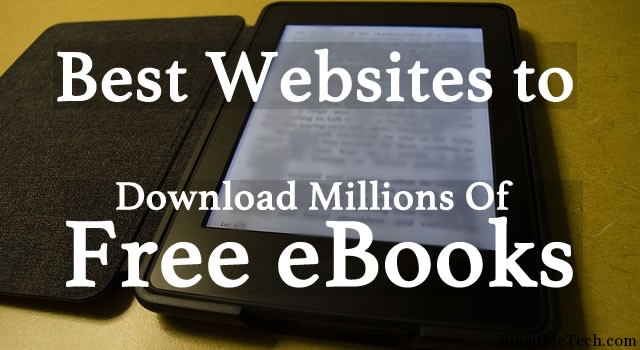




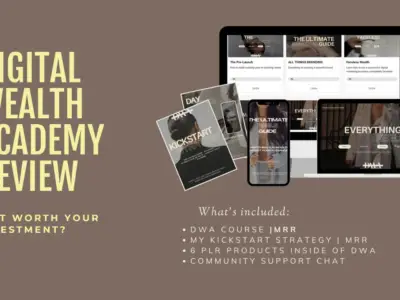



Comments